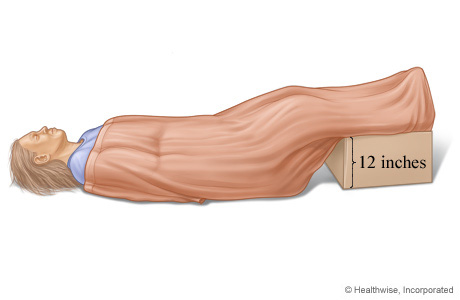Overview
What is
shock?
Shock means that your body and its functions are shutting down. The body goes into shock when it can't get enough blood to the vital organs like your heart or brain. This may be caused by a sudden illness, an injury, or bleeding. Sometimes even a mild injury will lead to shock.
Shock is a life-threatening condition. If a person has signs of shock, call 911 or other emergency services and start home treatment right away.
What are the symptoms
of shock?
Adults and older children usually have several symptoms of shock, including:
- Passing out (losing consciousness).
- Feeling very dizzy or lightheaded, like you may pass out.
- Feeling very weak or having trouble standing.
- Not feeling alert or able to think clearly. You may be confused, restless, fearful, or unable to respond to questions.
Babies and young children also usually have several symptoms of shock, including:
- Passing out (losing consciousness).
- Being very sleepy or hard to wake up.
- Not responding when being touched or talked to.
- Breathing much faster than usual.
- Acting confused. The child may not know where they are.
Home Treatment

Prompt home treatment can save the life of a person who is in shock.
-
Call
911 or other emergency services.
- Have the person lie down. If there is an injury to the head, neck, or chest, keep the legs flat. Otherwise, raise the person's legs at least 12 in. (30 cm).
- If the person vomits, roll them to one side to let fluids drain from the mouth. If you think the person might have a neck or back injury, gently roll the person's head, neck, shoulders, and body together as a unit (logroll).
-
Stop any bleeding, Opens dialog
, and splint any broken bones.
- Keep the person warm but not hot. Put a blanket under the person, and cover them with a sheet or blanket, depending on the weather. If the person is in a hot place, try to keep the person cool.
-
Take the person's pulse, Opens dialog
in case medical staff on the phone need to know how fast or slow it is. Take it again if the person's condition changes.
- Try to keep the person calm.
Learn more
Credits
Current as of: July 31, 2024